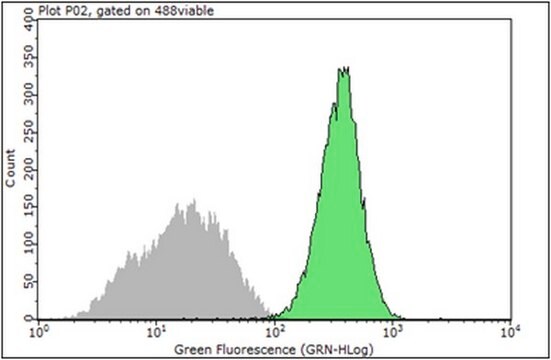AB1344
Anti-Glucose Transporter GLUT-3 Antibody, CT
serum, Chemicon®
About This Item
Productos recomendados
biological source
rabbit
Quality Level
antibody form
serum
antibody product type
primary antibodies
clone
polyclonal
species reactivity
rat, mouse
manufacturer/tradename
Chemicon®
technique(s)
ELISA: suitable
western blot: suitable
NCBI accession no.
UniProt accession no.
shipped in
wet ice
target post-translational modification
unmodified
Gene Information
mouse ... Slc2A3(20527)
rat ... Slc2A3(25551)
Specificity
Immunogen
Application
Other detection methods may require a higher concentration of antibody.
ELISA: 1:10,000 - 1:50,000, using 50-100 ng of antigen/well.
Optimal working dilutions must be determined by end user.
Physical form
Storage and Stability
Analysis Note
The control peptide is available for absorbtion studies. Please see catalog number AG617.
Legal Information
¿No encuentra el producto adecuado?
Pruebe nuestro Herramienta de selección de productos.
Storage Class
10 - Combustible liquids
wgk_germany
WGK 1
Certificados de análisis (COA)
Busque Certificados de análisis (COA) introduciendo el número de lote del producto. Los números de lote se encuentran en la etiqueta del producto después de las palabras «Lot» o «Batch»
¿Ya tiene este producto?
Encuentre la documentación para los productos que ha comprado recientemente en la Biblioteca de documentos.
Nuestro equipo de científicos tiene experiencia en todas las áreas de investigación: Ciencias de la vida, Ciencia de los materiales, Síntesis química, Cromatografía, Analítica y muchas otras.
Póngase en contacto con el Servicio técnico







